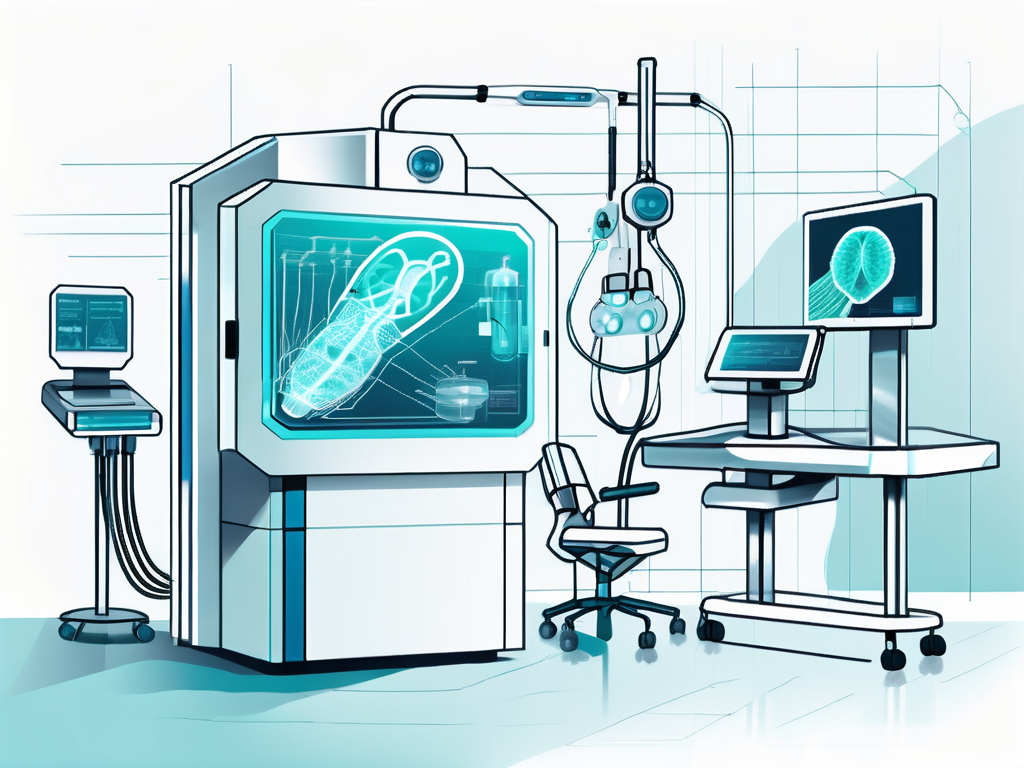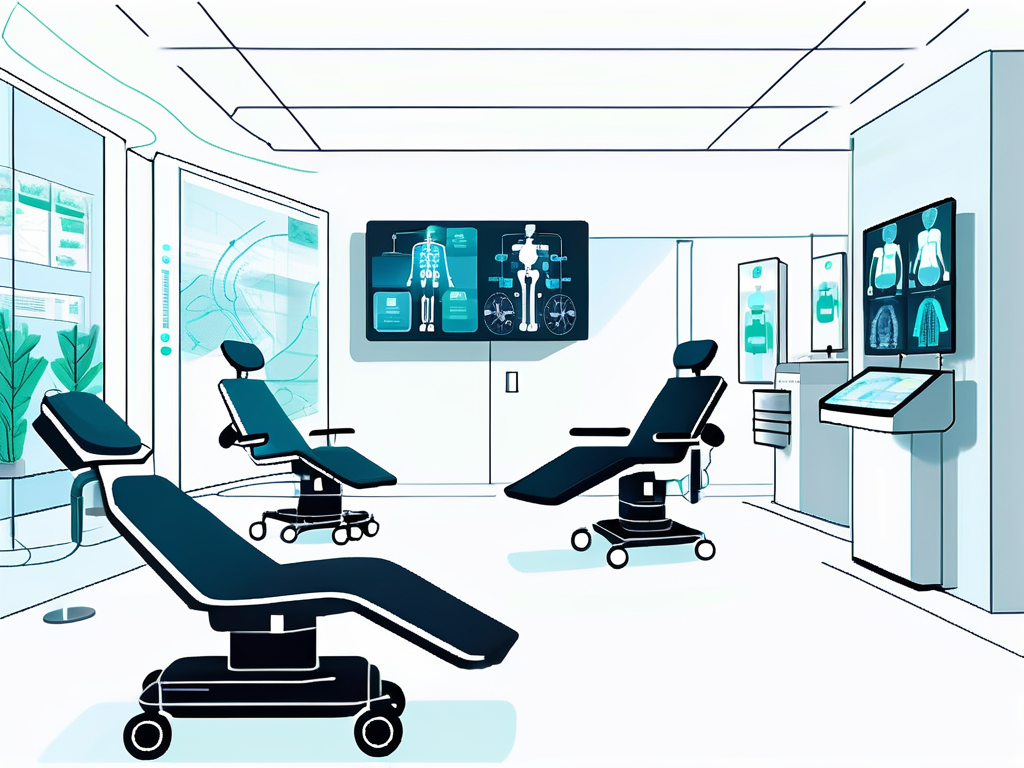The rapid advancements in technology have revolutionized various industries, and healthcare is no exception. As the demand for more efficient and effective healthcare services continues to grow, there is a pressing need for innovation in healthcare models. Traditional healthcare systems are struggling to keep up with the ever-increasing demands and complexities of modern healthcare. This article delves into the potential of AI-powered healthcare models to bridge the gap between the current state of healthcare and the transformative possibilities offered by artificial intelligence.
Understanding the need for innovation in healthcare
In order to fully appreciate the significance of AI-powered healthcare models, it is important to acknowledge the existing challenges facing the healthcare industry. The current state of healthcare is plagued by numerous issues, ranging from a shortage of healthcare professionals to inefficient processes and skyrocketing costs. These challenges have led to a lack of access to quality healthcare services for many individuals.
Furthermore, the rapid advancements in medical technology and the increasing complexity of healthcare treatments have put additional strain on healthcare systems worldwide. The demand for personalised and efficient care has never been higher, necessitating innovative solutions to meet the evolving needs of patients and healthcare providers alike.
The current state of healthcare
According to the World Health Organization, approximately half of the global population lacks access to essential healthcare services. This staggering statistic highlights the urgency for innovative healthcare models that can address the inherent limitations of traditional healthcare systems.
In addition to accessibility issues, disparities in healthcare quality and outcomes persist across different demographics and regions. Vulnerable populations, such as low-income communities and rural areas, often face barriers to receiving timely and adequate healthcare services, exacerbating existing health inequalities.
Identifying the gaps in traditional healthcare models
One of the key shortcomings of traditional healthcare models is their reliance on manual processes and human decision-making, which can be prone to errors and inconsistencies. Additionally, the lack of interoperability between different healthcare systems hampers the seamless exchange of patient information, resulting in fragmented care and unnecessary delays.
Moreover, the siloed nature of healthcare data within individual institutions limits the ability to harness the full potential of data-driven insights and predictive analytics. By breaking down these data silos and fostering collaboration between healthcare providers, innovative technologies like AI and machine learning can revolutionise healthcare delivery and improve patient outcomes on a global scale.
The rise of artificial intelligence in healthcare
As technology continues to advance at an unprecedented pace, artificial intelligence has emerged as a powerful tool in the healthcare industry. AI refers to the simulation of human intelligence in machines that are programmed to learn, reason, and make decisions.
Artificial intelligence in healthcare is not a new concept but has gained significant traction in recent years due to the exponential growth of data and the development of more sophisticated algorithms. The integration of AI technologies in healthcare systems has the potential to revolutionize the way medical professionals deliver care and how patients experience treatment.
The concept of AI in healthcare
In the context of healthcare, AI involves the use of algorithms and machine learning techniques to analyze vast amounts of data and make predictions or recommendations. By leveraging AI, healthcare professionals can gain valuable insights and access to real-time information, enhancing the accuracy and efficiency of diagnostic and treatment processes.
Moreover, AI can also be utilised to personalise patient care by analysing individual health data and tailoring treatment plans to specific needs. This level of personalisation can lead to better patient outcomes and improved overall healthcare quality.
The potential of AI in transforming healthcare
The potential of AI in healthcare is immense. From improving patient outcomes to streamlining administrative tasks, AI-powered healthcare models have the ability to revolutionize the entire healthcare ecosystem. With AI, healthcare professionals can augment their expertise with intelligent algorithms that can assist in diagnosis, treatment, and even predictive analytics.
Furthermore, AI can help in reducing medical errors by providing decision support to healthcare providers and flagging potential risks or inconsistencies in treatment plans. This proactive approach to healthcare management can enhance patient safety and contribute to a more efficient healthcare system overall.
Unpacking AI-powered healthcare models
AI-powered healthcare models encompass a range of innovative technologies and approaches that leverage the capabilities of artificial intelligence. These models aim to enhance the delivery of healthcare services and improve patient experiences.
Artificial intelligence (AI) has been making waves in the healthcare industry, offering a plethora of benefits and possibilities. From streamlining administrative tasks to revolutionising patient care, AI-powered healthcare models are at the forefront of modern medical advancements.
Key features of AI-powered healthcare models
AI-powered healthcare models typically involve the integration of various technologies, such as machine learning algorithms, natural language processing, and predictive analytics. These models are designed to analyze patient data, identify patterns, and generate actionable insights that can support clinical decision-making.
Machine learning algorithms play a crucial role in the functionality of AI-powered healthcare models. By continuously learning from data inputs, these algorithms can adapt and improve over time, providing more accurate and personalised healthcare solutions for patients.
The role of AI in diagnosis and treatment
AI has the potential to revolutionize the diagnosis and treatment processes in healthcare. By analyzing vast amounts of patient data, including medical records, imaging scans, and genetic information, AI algorithms can assist healthcare professionals in making accurate and timely diagnoses. Additionally, AI can help identify the most effective treatment options tailored to the individual needs of patients.
Natural language processing (NLP) is another key component of AI-powered healthcare models. NLP enables machines to understand and interpret human language, allowing for more efficient communication between healthcare providers and patients. This technology can help streamline administrative tasks, improve patient engagement, and ultimately enhance the overall healthcare experience.
The impact of AI on healthcare professionals
As AI continues to gain prominence in healthcare, it is inevitable that it will have a profound impact on the roles and responsibilities of healthcare professionals. While some may perceive this as a threat to job security, the incorporation of AI in healthcare presents numerous opportunities for healthcare professionals to evolve and adapt to a changing landscape.
The healthcare industry has always been at the forefront of technological advancements, and the integration of AI is no exception. With the potential to revolutionise patient care and streamline processes, AI is set to transform the way healthcare professionals operate on a day-to-day basis. This shift towards a more technology-driven approach is not about replacing human expertise but enhancing it, creating a synergy between AI capabilities and the skills of healthcare professionals.
How AI is changing the role of healthcare professionals
AI can automate repetitive tasks and enable healthcare professionals to focus more on patient care and complex decision-making. For example, AI-powered chatbots can provide initial triage and answer common patient queries, freeing up healthcare professionals to tackle more critical cases. Furthermore, AI can assist in research and drug discovery, potentially accelerating the development of new treatment options.
Moreover, AI has the potential to improve diagnostic accuracy by analysing vast amounts of medical data to identify patterns and trends that may not be immediately apparent to human practitioners. This can lead to earlier detection of diseases and more personalised treatment plans for patients, ultimately improving health outcomes and reducing healthcare costs in the long run.
The benefits and challenges for healthcare professionals
While AI offers significant benefits for healthcare professionals, it also poses challenges that need to be addressed. Healthcare professionals need to be adequately trained to effectively leverage AI technologies and interpret the insights generated. Additionally, ethical considerations, such as data privacy and algorithmic bias, need to be carefully navigated to ensure that AI-powered healthcare models are fair and equitable.
Embracing AI in healthcare requires a shift in mindset and a commitment to continuous learning and development. Healthcare professionals must be willing to adapt to new technologies and workflows, embracing change as an opportunity for growth and innovation in the ever-evolving landscape of healthcare delivery.
The future of AI-powered healthcare
Looking ahead, the future of AI-powered healthcare is bound to be even more transformative. As technology continues to advance, the potential for AI to revolutionize healthcare delivery and outcomes is virtually limitless.
Predicting the future of AI in healthcare
Experts anticipate that AI will play a crucial role in personalized medicine, enabling tailored treatments and interventions based on an individual’s unique characteristics and genetic makeup. Additionally, AI has the potential to improve population health management by analyzing large datasets and identifying trends and risk factors that can inform preventive measures.
Preparing for an AI-driven healthcare future
With the rapid pace of technological advancements, it is crucial for healthcare organizations and professionals to embrace AI and stay abreast of the latest innovations. Collaboration between healthcare providers, technology companies, and regulatory bodies will be vital to ensure that AI-powered healthcare models are effectively regulated and implemented for the benefit of patients and the healthcare system as a whole.
Moreover, the future of AI-powered healthcare holds exciting possibilities for remote patient monitoring. Imagine a scenario where individuals can have their vital signs continuously monitored from the comfort of their own homes. AI algorithms could analyze real-time data and alert healthcare providers of any concerning changes, allowing for early intervention and improved patient outcomes. This would not only reduce the burden on healthcare facilities but also provide patients with greater convenience and peace of mind.
Furthermore, AI has the potential to revolutionize medical research and drug discovery. By analyzing vast amounts of scientific literature and clinical trial data, AI algorithms can identify patterns and potential drug targets that may have been overlooked by human researchers. This could lead to the development of more effective treatments for various diseases and conditions, ultimately improving patient care and quality of life.
In conclusion, innovative healthcare models powered by AI offer tremendous potential to revolutionize the current state of healthcare and address the challenges faced by traditional healthcare systems. By leveraging the capabilities of AI, healthcare professionals can enhance diagnostic accuracy, improve patient outcomes, and streamline administrative processes. However, it is essential to navigate the ethical and practical considerations associated with AI implementation to ensure that these models are safe, fair, and effective. As we look toward the future, embracing AI in healthcare is crucial to harness its transformative power and shape a more efficient and accessible healthcare system.
As we stand on the brink of a healthcare revolution, the time is now to position Your Clinic at the forefront of innovation. Angelo Rosati and the team at Clinic Marketing AI are dedicated to propelling your practice into the future with cutting-edge AI solutions tailored to healthcare. With a deep-rooted commitment to excellence and a proven track record in health tech, we are not just a service provider but a partner in your journey towards transformative growth. Book a Call with Us today, and together, let’s unlock the full potential of AI-powered healthcare for Your Clinic.



